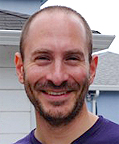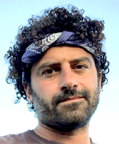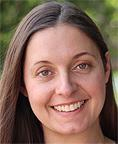- Community Boards’ Conflict Resolution Clinics are intensive, two-hour workshops designed for both new and experienced conflict resolution practitioners, attorneys, HR managers, specialists, and other interested individuals. Led by seasoned professionals, these clinics cover an exciting variety of topics and conflict resolution and restorative justice practices.
Upcoming Conflict Resolution Clinics
May
Wellness at Work & Beyond
Fostering Supportive Networks & Stress Resilience
With Patricia Barragán & Giles Feinberg
May 16, Thursday, 5:30-7:30pm PDT
Live Interactive Workshop on Zoom
The first segment Patricia’s and Giles’ workshop will focus on Community and Peer Support. Participants will delve into the significance of building a robust network of support within the workplace. Through interactive discussions and activities, participants will understand the pivotal role of peer support in cultivating a healthy work culture. They will learn strategies to encourage open communication, teamwork, and mutual assistance among colleagues, fostering an environment where everyone feels valued and supported.
The second segment of their workshop will revolve around Stress Management. Attendees will gain practical skills in identifying sources of stress specific to their work environments. Participants will learn how to recognize stress triggers and implement effective coping mechanisms. Time management techniques will also be explored to optimize productivity and reduce stress. Finally, participants will discover relaxation methods and resilience-building activities that can be easily incorporated into their daily routines to enhance their ability to navigate challenges with composure and resilience.
Community and Peer Support Learning Objectives
Training Focus: Building a supportive network within the workplace.
Takeaway: Emphasizing the importance of peer support and fostering a workplace culture that encourages open communication, teamwork, and mutual support among colleagues.
Stress Management Learning Objectives
Skill: Identifying sources of stress and implementing strategies to cope with them.
Takeaway: Recognizing stress triggers, utilizing time management techniques, and incorporating activities that promote relaxation and resilience in the face of challenges.
Giles Feinberg
 Giles is an experienced victim advocate and trainer with 10 years of direct service experience with the San Francisco District Attorney’s Office, Victim Services Division. His caseload spanned a wide array of crime types from assault, gang-cases, witness protection, homicide, and sex crimes.
Giles is an experienced victim advocate and trainer with 10 years of direct service experience with the San Francisco District Attorney’s Office, Victim Services Division. His caseload spanned a wide array of crime types from assault, gang-cases, witness protection, homicide, and sex crimes.
Giles supervised a team of advocates handling general felonies and critical incidents for underserved communities of color in San Francisco. He developed a training program for law enforcement, co-presenting with Patricia Barragán, at the Institute of Criminal Investigation over 6 years. He obtained a graduate degree in social psychology from San Francisco State University in 2009. Inspired to have a creative outlet outside of trauma work, Giles became an adjunct professor of psychology at San Francisco State University and has taught there since 2016. He teaches on the subjects of social psychology, psychology of policing, and law and psychology.
Patricia Barragán
 Patricia is a client-centered advocate with over thirteen years of experience providing trauma-informed support services to victims of crime. During her time at the San Francisco Victim Services Division Patricia supervised the domestic violence, stalking, human trafficking, child abuse, sexual assault, and juvenile justice teams.
Patricia is a client-centered advocate with over thirteen years of experience providing trauma-informed support services to victims of crime. During her time at the San Francisco Victim Services Division Patricia supervised the domestic violence, stalking, human trafficking, child abuse, sexual assault, and juvenile justice teams.
Patricia has strong expertise in developing and implementing trauma-informed care programs. She is a certified domestic violence counselor and holds specialized training in Dr. Jacqueline Campbell’s Danger Assessment tool. Patricia attained her clinical hours providing psychotherapy sessions to adolescents and transitional-aged youth. Patricia served as a research assistant for “Survivor Voices: Understanding the Experiences of Violent Crime Survivors.” This survey was designed to gather vital input directly from California crime survivors on their experience, interactions with the criminal justice system, access to services and resources, and recovery needs.
Currently, Patricia works as an adjunct faculty at the University of San Francisco- Graduate Counseling Psychology Department. Sholds a Bachelor’s Degree in Political Science and Criminal Justice from San Francisco State University and a Master’s Degree in Clinical Psychology from Notre Dame de Namur University.
After registering, you will receive the Zoom information by email.
Back to top
June
Mediating Disputes for People with HIV/AIDS & Other Chronic Illnesses
 With Stephen M. Spano
With Stephen M. Spano
June 20, Thursday, 5:30-7:30pm PDT
Live Interactive Workshop on Zoom
Details coming soon!
July
The Science of Connection
Polyvagal Tools for Conflict Resolution
With Pauline Romas
July 25, Thursday, 5:30-7:30pm PDT
Live Interactive Workshop on Zoom
 Our bodies and brains are innately wired for connection and compassion—when internal conditions allow it. Pauline’s workshop explores the science behind nervous system states that either empower or disrupt the ability to communicate effectively and resolve conflict harmoniously.
Our bodies and brains are innately wired for connection and compassion—when internal conditions allow it. Pauline’s workshop explores the science behind nervous system states that either empower or disrupt the ability to communicate effectively and resolve conflict harmoniously.
Utilizing Polyvagal Theory (the science of the vagus nerve), we will demystify the physical processes that drive people towards or away from social connectivity. You will learn to recognize personal and interpersonal cues of a nervous system feeling threatened and retreating into self-protection.
Pauline will share practical details for understanding the fight/flight/freeze/fawn stress responses and how to work with these states. You will gain insight into your own triggers and discover simple yet powerful practices—strategic breathing, movement, sensory approaches—to counteract dysregulation and help yourself and others return to a calm center where openness, curiosity, and compassion are possible.
Whether mediating charged conflicts or navigating stressors in your own life, these tools allow you to shift from reactive physiology into a regulated nervous system where connection can thrive. Leave equipped to establish an environment of embodied safety, empathy, and dialogue.
- Explore the science behind nervous system states that either empower or disrupt the ability to communicate effectively and resolve conflict harmoniously.
- Learn to utilize the Polyvagal Theory that demystifies the physical processes that drive people towards or away from connection.
- Recognize personal and interpersonal cues of a nervous system feeling threatened and retreating into self-protection.
- Gain insight into your own triggers and discover simple yet powerful practices to help yourself and others return to a calm center where openness, curiosity, and compassion are possible.
- Leave equipped to establish an environment of embodied safety, empathy, and dialogue.
Pauline Romas
Pauline is a certified embodiment and neurological fitness coach who helps people develop a deeper mind-body connection for overall wellness and spiritual growth. She uses somatic techniques to teach individuals how to regulate their nervous system, reduce stress, and bring more presence into their daily lives.
With a background in software development and corporate training, Pauline brings an analytical and structured approach to her coaching methodology. She guides clients through customized programs involving meditation, breathwork, movement, and other mindfulness-based practices to access deeper wisdom in the body and support personal transformation.
Pauline’s passion is helping others reconnect to their body’s innate wisdom to live a more meaningful, thriving, and connected life. She offers personalized coaching sessions, workshops, corporate wellness programs, and speaking engagements focused on topics including mindful communication, somatic awareness, and integrated mind-body health. Pauline specializes in Polyvagal Theory and the vagus nerve, helping illuminate the groundbreaking neuroscience of safety and connection. Learn more about Pauline.
After registering, you will receive the Zoom information by email.
Back to top
Clinic Cancellation & Transfer Fees
If you cancel more than 24 hours before the clinic start time, there is a $7.50 cancellation fee. This fee will be waived one time if registration is transferred to a subsequent clinic that begins within twelve months of the training start date. No refunds for cancellations 24 hours or less before the clinic start time.
QUESTIONS?
Trainings: Sarah Moss, Mediation and Training Coordinator, smoss@communityboards.org
General inquiries: Jim Garrison, Communications Director, jgarrison@communityboards.org

